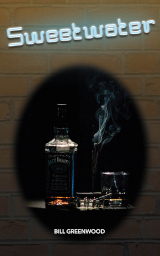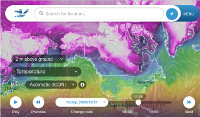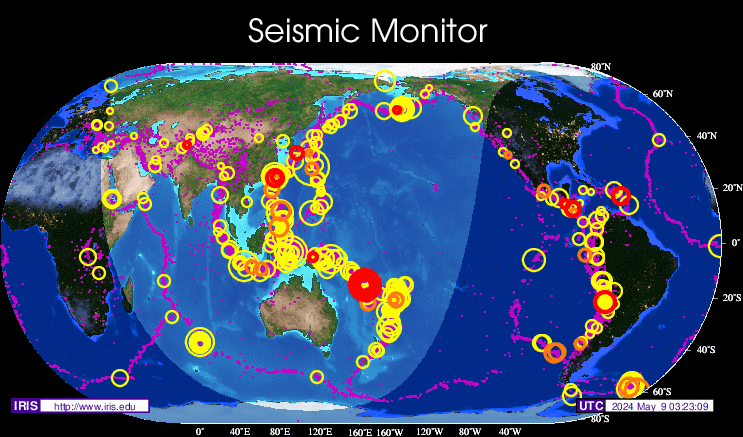Why this blog?
Until this moment I have been forced to listen while media and politicians alike have told me "what Canadians think". In all that time they never once asked.
This is just the voice of an ordinary Canadian yelling back at the radio -
"You don't speak for me."
email Kate
Goes to a private
mailserver in Europe.
I can't answer or use every tip, but all are appreciated!


Katewerk Art
Support SDA
Paypal:
Etransfers:
katewerk(at)sasktel.net
Not a registered charity.
I cannot issue tax receipts
Favourites/Resources
Instapundit
The Federalist
Powerline Blog
Babylon Bee
American Thinker
Legal Insurrection
Mark Steyn
American Greatness
Google Newspaper Archive
Pipeline Online
David Thompson
Podcasts
Steve Bannon's War Room
Scott Adams
Dark Horse
Michael Malice
Timcast
@Social
@Andy Ngo
@Cernovich
@Jack Posobeic
@IanMilesCheong
@AlinaChan
@YuriDeigin
@GlenGreenwald
@MattTaibbi
Support Our Advertisers

Sweetwater

Polar Bear Evolution

Email the Author
Wind Rain Temp

Seismic Map

What They Say About SDA
"Smalldeadanimals doesn't speak for the people of Saskatchewan" - Former Sask Premier Lorne Calvert
"I got so much traffic after your post my web host asked me to buy a larger traffic allowance." - Dr.Ross McKitrick
Holy hell, woman. When you send someone traffic, you send someone TRAFFIC.My hosting provider thought I was being DDoSed. - Sean McCormick
"The New York Times link to me yesterday [...] generated one-fifth of the traffic I normally get from a link from Small Dead Animals." - Kathy Shaidle
"You may be a nasty right winger, but you're not nasty all the time!" - Warren Kinsella
"Go back to collecting your welfare livelihood. - "Michael E. Zilkowsky
As an aside, an attack on a tanker in the gulf by Iran could bs the pretext for a joint attack by the US, israel and others.
Or an attack could be fabricated…
That link to the U-boat underscores the haste with which Canada responded to that crisis. As one of the old boys hereabouts once remarked—-“they were building corvettes in every creek.”
In Ontario…Kingston, Port Colbourne, Midland, Owen Sound…..
The corvettes were slow, lightly armed but equiped with asdic(sonar) and difficult to torpedo……so effective that some Canadian built examples were transferred to the USN.
The Brits anxious for naval patrol bombers had Lockheed convert their Electra commercial airliners and named them Hudsons…..which the USN promptly adopted as anti-submarine aircraft.
Pivotal in the matter was Kaisers Liberty ship programme…..providing freighters faster than the U-boats could sink them without interferring with the established shipyards building escorts.
The crisis for the u-boats came when dedicated “hunter-killer” groups sort of accompanied convoys but stayed on a sonar contact until destruction.
Consolidated Liberators closed the “mid-Atlantic gap” and could even locate (by centimetric radar) and successfully attack u-boats at night charging their batteries on the surface….frequently vectored by decoded U-boat communications.
The first years were a trial though, until all these factors converged.
What with the way those ecofreaks are carrying on about unclean transportation I am starting to wonder…. What will be the best business to get into. Selling riding horses for transportation or manufacturing and marketing pooper scoopers for cleaning up after them. Decisions, decisions. Geez why do I get all the hard ones?
sasquatch – I am still paying careful attention to your posts – FYI
BobDevine, don’t forget chariots, carriages and tachankas for the military.
sasquatch, that was great little precis regarding the U-boat hunters. Were not many of the surviving corvettes converted to fishing vessels?
I guess maybe it’s time to start making Buggy Whips. Should come in handy when all the oil is locked down, coal taxed out of existance and a $41,000 Volt that gets a whopping 40 miles per charge.
Buggy whips, YES WE CAN>
I guess maybe it’s time to start making Buggy Whips. Should come in handy when all the oil is locked down, coal taxed out of existance and a $41,000 Volt that gets a whopping 40 miles per charge.
Buggy whips, YES WE CAN.
sasquatch and others:
You all seem to forget the immense importance of breaking the German naval codes, performed at Bletchley Park outside London. Without Ultra, the Battle of the Atlantic may well have been lost.
But the truly amazing thing to me was the single sentence in the linked report about building a pipeline from Portland, ME to Montreal in less than a year. I’ve driven that route a number of times – if you take the direct route, which is at least 400 miles, you’re going through the White Mountains; if you try to avoid the mountains, the distance has to be at least double. ‘Course, I’m betting they didn’t have to worry about environmentalists or the habitat of the Eastern grey thatched warbler.
Ken (Kulak)12:27 AM
[……… Were not many of the surviving corvettes converted to fishing vessels?…….]
No idea……..though I suspect some were used as whalers—-the original basis for the design.
A few numbers might help to put things in perspective. If you go here:
http://www.itopf.com/information-services/data-and-statistics/statistics/
you discover that the total oil loss from all tanker accidents, 1970-1990, has been approximately 5.65 million tonnes of oil.
Now, there were approximately 36,000 ships of all types sunk during WW2. If you assume an average of 500 tonnes of oil lost (averaging together big warships and tankers with all the small stuff), that’s 18 million tonnes spilled in total or approximately three times the total from tanker wreckage noted above and more than a thousand times the impact of a single supertanker loss.
In short, while very large, the modern so-called environmental disasters of oil spills are simply dwarfed beyond real comparison by the environmental disaster of oil spills during WW2.
And no one was doing any environmental cleanup of any of it. They had other things to be concerned about.
Q “Is that a U-boat?”
A “It’s not a my boat.”
Marx Brothers.
@ cgh, IOW, even though the BP stupidity should never have happened (intentional lax?) perhaps others were too quick in their disaster hypeness .
That’s exactly it, Ron. Notice that the media rarely applies any quantification, particularly comparative quantification, to put any of these disasters into perspective. Yes, this was a disaster, but it’s relatively small potatoes compared to other oil-related events, and utterly trivial compared to just the oil-spill impact of WW2, let alone all of its other huge and hideous negative impacts.
This is an ancient, ancient problem, namely that the media is myopic. Peter Abelard first illustrated this problem about 800 years ago (roses growing on the abbey wall are more important than a feudal war raging in the next province). Yes, Katrina was a disaster, but nothing on the scale of the annual drownings from floods and mudslides that routinely accompany the monsoon season in SE Asia. The Yellow and Yangtze Kiang Rivers have drowned millions more people in floods than the sum total of Nth Am river flooding since the continent was settled. To put it another way, 13 people died in the oil rig when it blew and that’s called a disaster. Tens of thousands die every year in Nth Am traffic accidents and it’s treated as something as routine as the weather.
There are indeed real problems in the world. But the media’s distorted presentation of its disaster narrative avoids focus on these and detours us into triviality. It’s because the real disasters are usually long term, chronic problems, i.e. AIDS, poverty, infrastructure deficit, disease, malnutrition. And the media has the attention span of a fruit fly.
The consequence is that we are constantly bombarded by disaster stories all around us. Given such hyperbolic overkill, we start to tune out and become indifferent to all disaster stories. And that is the real damage inflicted by the media. If everything’s a disaster, then nothing’s a disaster.